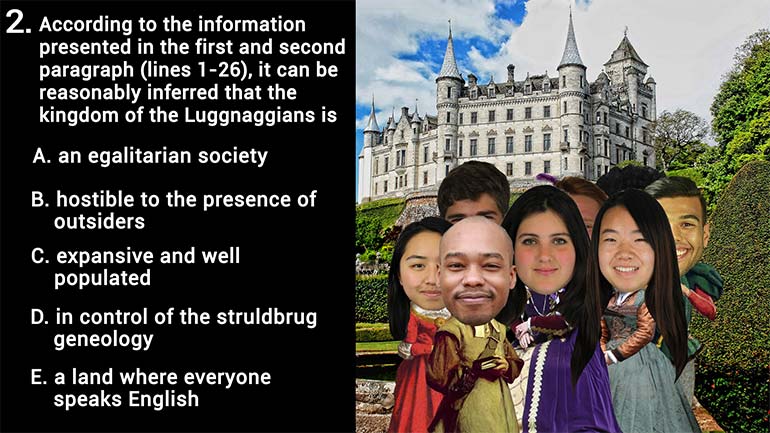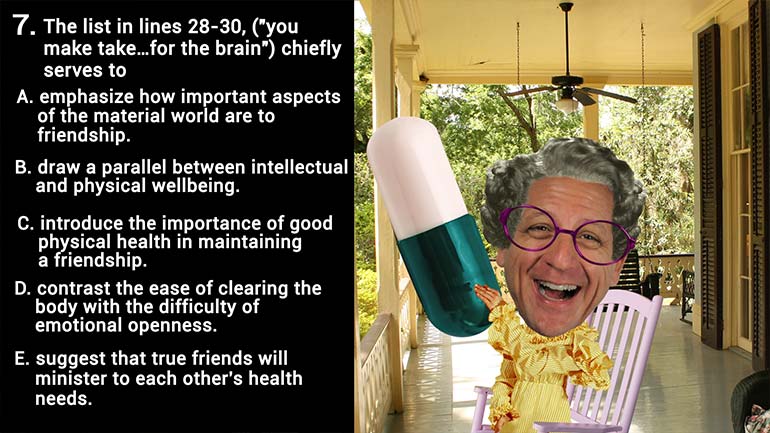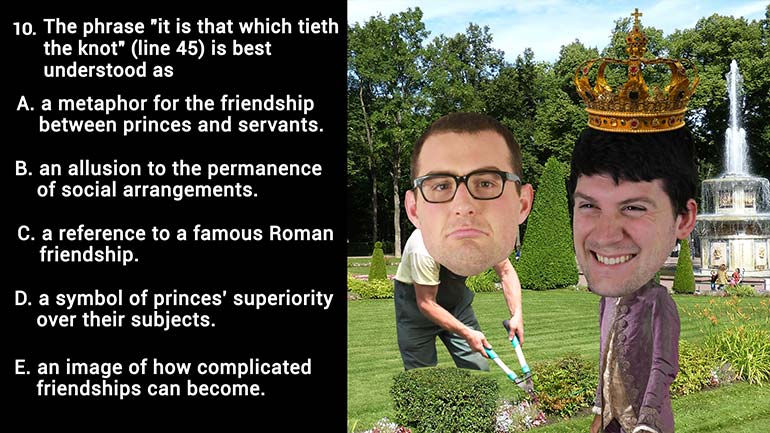ShmoopTube
Where Monty Python meets your 10th grade teacher.
Search Thousands of Shmoop Videos
AP English Literature: Meter in Successive Couplets 12 Views
Share It!
Description:
Written in a single stanza of 24 lines, the poem's successive couplets are structured according to what kind of meter?
Transcript
- 00:00
Sorry Okay More AP English lit for you a couple
- 00:06
more here Here we go written in a single stands
- 00:21
up twenty four lines The poems Successive couplets are structured
- 00:26
according to what kind of meter European system otherwise would
- 00:31
be a kind of yard Well let's think about this
Full Transcript
- 00:34
Though the poem may look tightly structured with those rhyming
- 00:37
couplets there isn't a consistent meter which makes it free
- 00:41
verse writes like a rapper The speaker goes wherever the
- 00:44
metrical winds take him so that's it It's e free
- 00:47
verse Iambic pentameter is very common but it's not used
- 00:51
in this poem So get rid of egg and the
- 00:52
same goes for I am big Try neater B another
- 00:55
type of meter and the Rondo D which is actually
- 00:58
a poetic form like a sonnet or a villain L
- 01:02
common measure as in sea there is a four line
- 01:05
rhyming stanzas which also doesn't apply here All those come
- 01:08
out of the blue and they're just testing your vocab
- 01:10
skills If you need help on that go look at
- 01:12
our shmoop poetry thing It's a deep and rich and
- 01:15
lovely people died writing that thing and it cost a
- 01:18
billion dollars So please advertise it anyway That's it The
- 01:20
answer is E as in free verse like Free Willy
Up Next
According to the information presented in the first and second paragraph (lines 1-26), it can be reasonably inferred that the kingdom of the Luggna...
Related Videos
In line 27, the adjective "inexpressible" is used
The main idea of the second paragraph (lines 24-33) can best be restated that
The list in lines 28-30, ("you make take sarza for the liver…castoreum for the brain") chiefly serves to
The phrase "it is that which tieth the knot" (line 45) is best understood as




